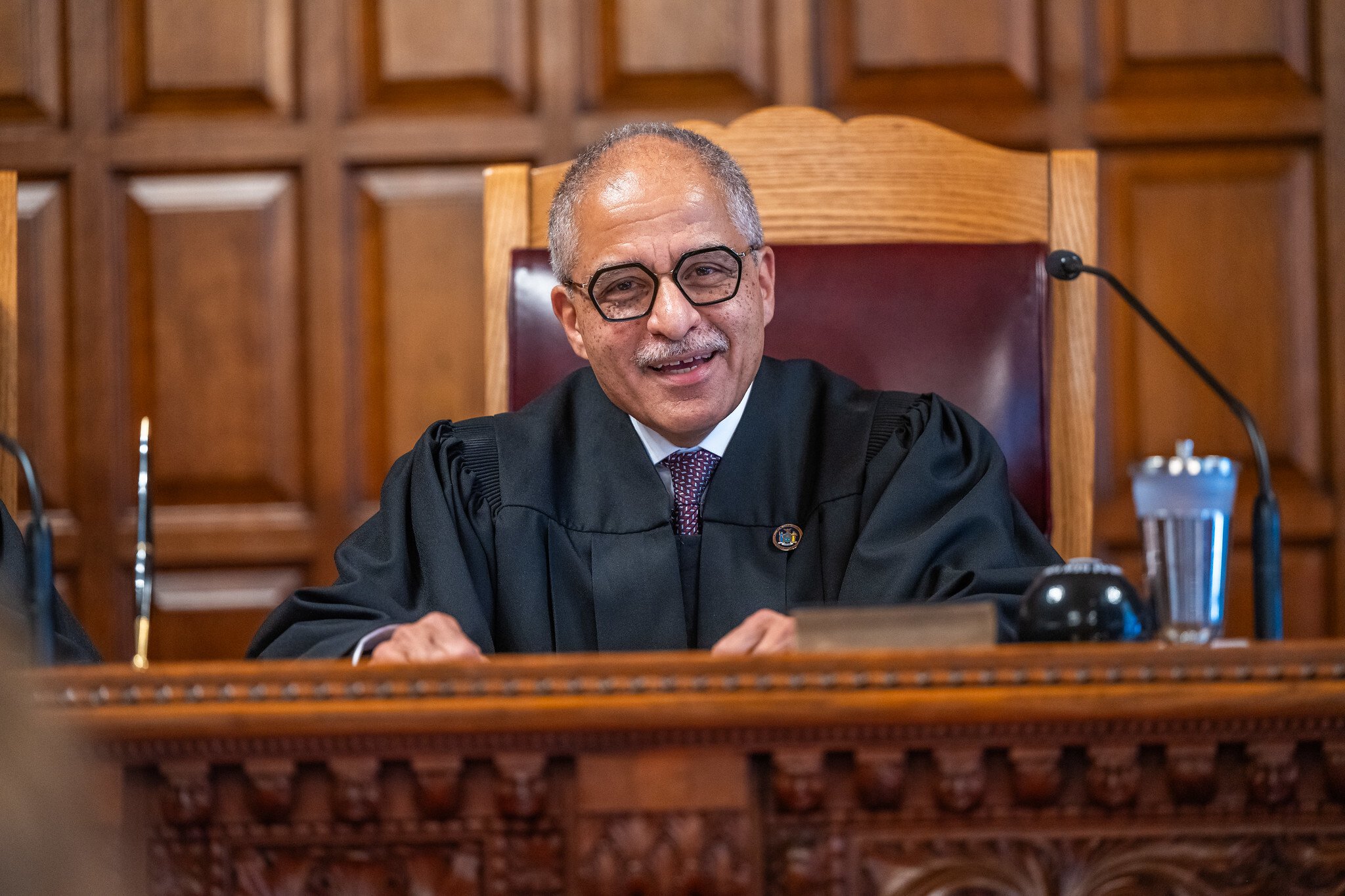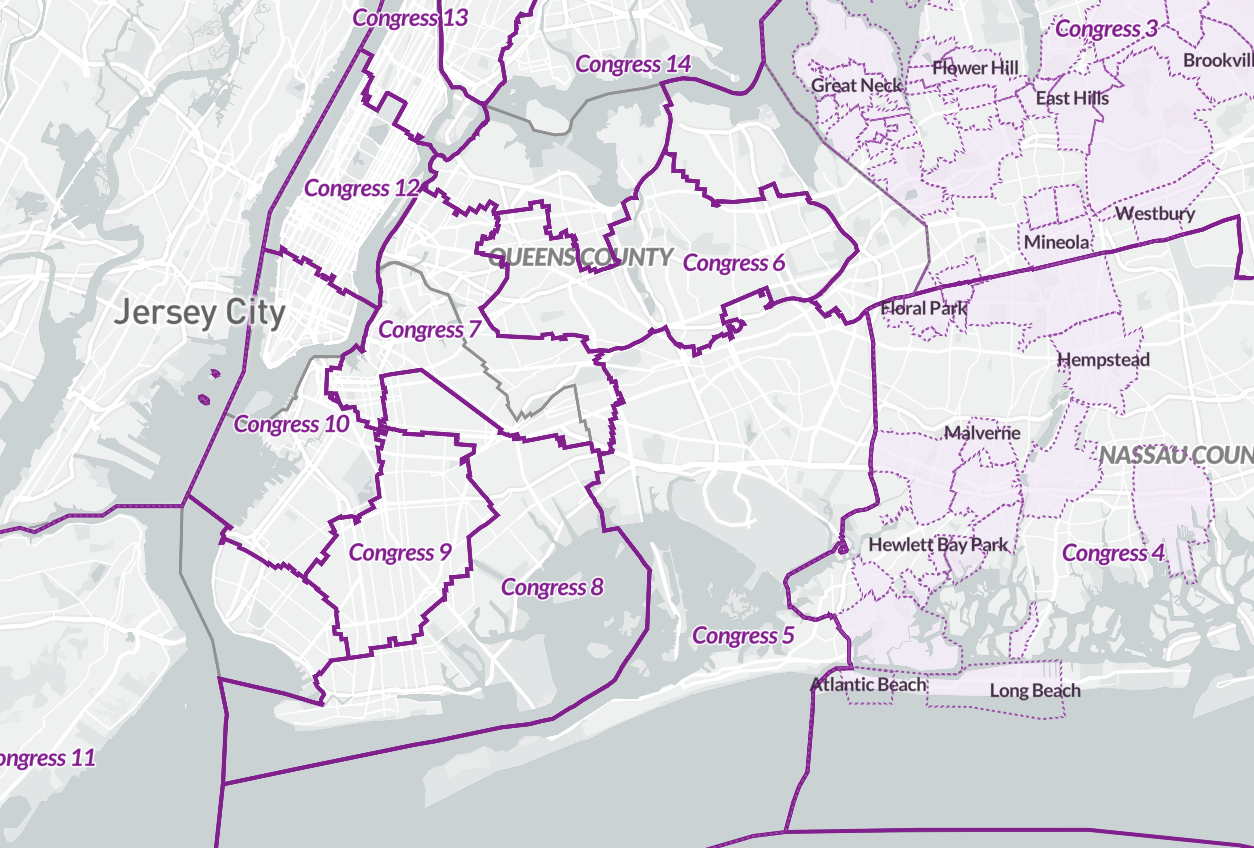Court of Appeals orders congressional districts to be redrawn
/Chief Judge Rowan Wilson ruled in a majority opinion on Tuesday that the Independent Redistricting Commission is required to draw a new congressional map for New York state, continuing the state’s multi-year redistricting saga.File photo via Governor Hochul’s office
By Jacob Kaye
New York’s top court on Tuesday ordered the state to redraw its congressional districts, ruling that the state’s current congressional district lines, which were drawn by a court-appointed special master and used in the 2022 elections, deprived New Yorkers of their constitutional rights.
The decision from the Court of Appeals is a major win for state Democrats, who previously lost a challenge to the congressional district lines drawn by lawmakers after the state’s Independent Redistricting Commission failed to complete its constitutional responsibilities last year.
The ruling could have major implications not only in New York, but nationally, where Republicans hold a slim majority in the House of Representatives. Republicans in New York stand to lose anywhere from two to six seats they currently hold in the Empire State depending on how the congressional districts are drawn by the IRC.
In its ruling on Tuesday, the state’s highest court ordered the IRC to submit a new congressional district map to the legislature for approval “on the earliest possible date, but in no event later than February 28, 2024.”
Led by Chief Judge Rowan Wilson, a progressive jurist appointed to the top seat on the court by Governor Kathy Hochul earlier this year, the court sided with the Democratic petitioners in the case, agreeing that the use of the special master’s maps deprived New Yorkers of their rights to vote in districts drawn by the IRC, as written in a constitutional amendment passed around a decade ago.
“In 2014, the voters of New York amended our Constitution to provide that legislative districts be drawn by an Independent Redistricting Commission,” Wilson said in the decision. “The constitution demands that process, not districts drawn by courts.”
In ordering the IRC, which is split between Republican and Democratic members, to again attempt to draw new maps, the Court of Appeals has ordered the state’s redistricting saga to continue into its third year.
Though this most recent once-in-a-decade redistricting was the first overseen by the IRC, the partisan fights over the lines have remained the same.
Tuesday’s ruling marked the second time the Court of Appeals ruled on the state’s congressional district lines, and the second time the top court ordered new maps to be drawn.
Issues with the state’s redistricting process began relatively quickly. After beginning to collect public testimony to inform their draft maps in 2021, the IRC, which was created in 2014 by a constitutional amendment in an effort to take map drawing powers out of the hands of the legislature, reached a standstill.
Required to submit a final map to the legislature for approval at the start of 2022, the IRC said that its members had reached a partisan deadlock, and told lawmakers that they wouldn’t be submitting a map at all.
As per a state law separate from the constitutional amendment creating the commission, state lawmakers took it upon themselves to draw and enact a set of congressional, Assembly and State Senate district maps.
Those maps were challenged in court by a group of Republicans, who claimed that the maps drawn by the lawmakers violated the constitution in two ways – because they were gerrymandered to favor Democratic incumbents and candidates and because they were drawn outside of the constitutionally-mandated process.
The case, known as Harkenrider v. Hochul, made its way to the Court of Appeals, which sided with the Republicans who brought the case. The court at the time was led by former Chief Judge Janet DiFiore, who ruled over a conservative majority that now appears to be in the minority under Wilson’s leadership. Following the top court’s decision, a lower court appointed a special master to draw the maps, which would go on to be enacted and used in last year’s elections.
The case ruled on by the court on Tuesday was brought by state Democrats, including Governor Kathy Hochul and State Attorney General Letitia James, and argued that the 2022 congressional map drawn by the court-appointed special master was only meant to be used in the 2022 congressional election, and not in the remaining four congressional elections slated for the rest of the decade.
In his opinion, Wilson said he agreed.
“The plain text of the 2014 amendments to the constitution places express limitations on court-drawn maps,” Wilson wrote. “Following the enactment of the 2014 amendments, New York courts no longer have the blanket authority to create decade-long redistricting plans. Instead, the constitution now limits court-drawn redistricting to the minimum required to remedy a violation of law.”
“Thus, the 2014 constitutional amendments place an explicit limitation on court-created maps,” he added.
Hochul and James celebrated the decision on Tuesday.
“Today's redistricting decision will ensure all New Yorkers are fairly and equitably represented by elected officials,” they said in a joint statement. “As the Court of Appeals reaffirmed today, district lines should be drawn by the Independent Redistricting Commission. We will continue our efforts to protect voting rights for all New Yorkers.”
Wilson’s position on the case closely resembled his dissenting opinion written last year in DiFiore’s court. However, on Tuesday, he led the majority and was joined by Judges Shirely Troutman, Jenny Rivera and Dianne Renwick, who was brought up to the court from the Appellate Division after Court of Appeals Judge Caitlin Halligan, who was appointed by Hochul earlier this year, recused herself from the case.
Court of Appeals Judges Michael Garcia, Madeline Singas and Anthony Cannataro were in the minority on Tuesday. The three judges ruled in favor of the Republican petitioners in Harkenrider v. Hochul.
New York’s congressional district lines are set to change after the Court of Appeals ruled that the current maps, depicted here, would violate the state’s constitution if they were to be used in the 2024 elections. Map via Redistricting and You/CUNY Graduate Center
In his dissenting opinion, Cannataro, who previously served as the acting chief judge of the court, blasted the majority for its decision.
“Recasting the judiciary’s long history of safeguarding New Yorkers’ right to free and fair elections as the problem in need of correction — with political gerrymandering meriting barely any mention in the majority decision — the court today strictly curtails the constitutional authority of the judiciary to remedy future legislative overreach, rewriting the constitution in order to do so,” he wrote.
Tuesday’s ruling could have large implications on a number of districts, including one in Queens.
New York’s 3rd Congressional District, which mostly is positioned in Long Island but includes a sliver of Northeast Queens, was flipped by now-expelled Rep. George Santos last year under the special master congressional maps. A special election for the now-vacated seat will be held several weeks before the court ordered the IRC to submit new maps to the legislature, however, an election for the seat will again be held in November of 2024, presenting Democrats with an opportunity to again flip the seat.
But just how permanent the IRC’s maps will be, remains unclear.
Should Republicans feel the maps were gerrymandered, they appear posed to again challenge the maps in court.
In his ruling on Tuesday, however, Wilson said that his decision would not invite future legal battles.
“Compelling the IRC to commence its constitutional duty will not re-open the door to future mid-decade challenges,” Wilson wrote. “Instead, once the IRC has submitted a second set of lawful redistricting maps adopted by the legislature, those maps would remain in place through the end of the decade.”
“That, in turn, would send a clear directive to the IRC in subsequent decades that it must comply with the constitution,” he added. “In any event, debates about gamesmanship are better addressed to the voters, who can repeal or modify the IRC process if it proves undesirable. Until such time, however, it is our obligation to enforce the constitutional process, not give up on it because of a judicial judgment that it was ill advised.”





